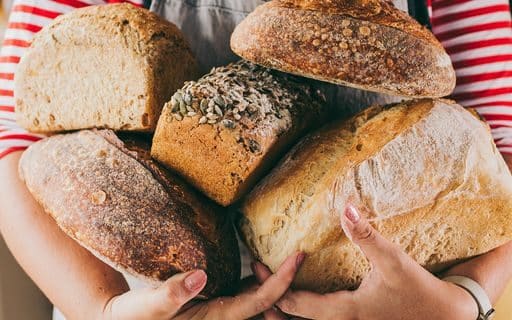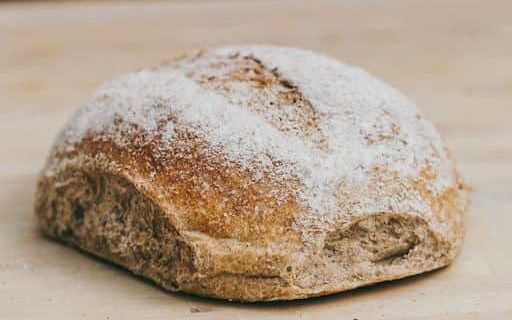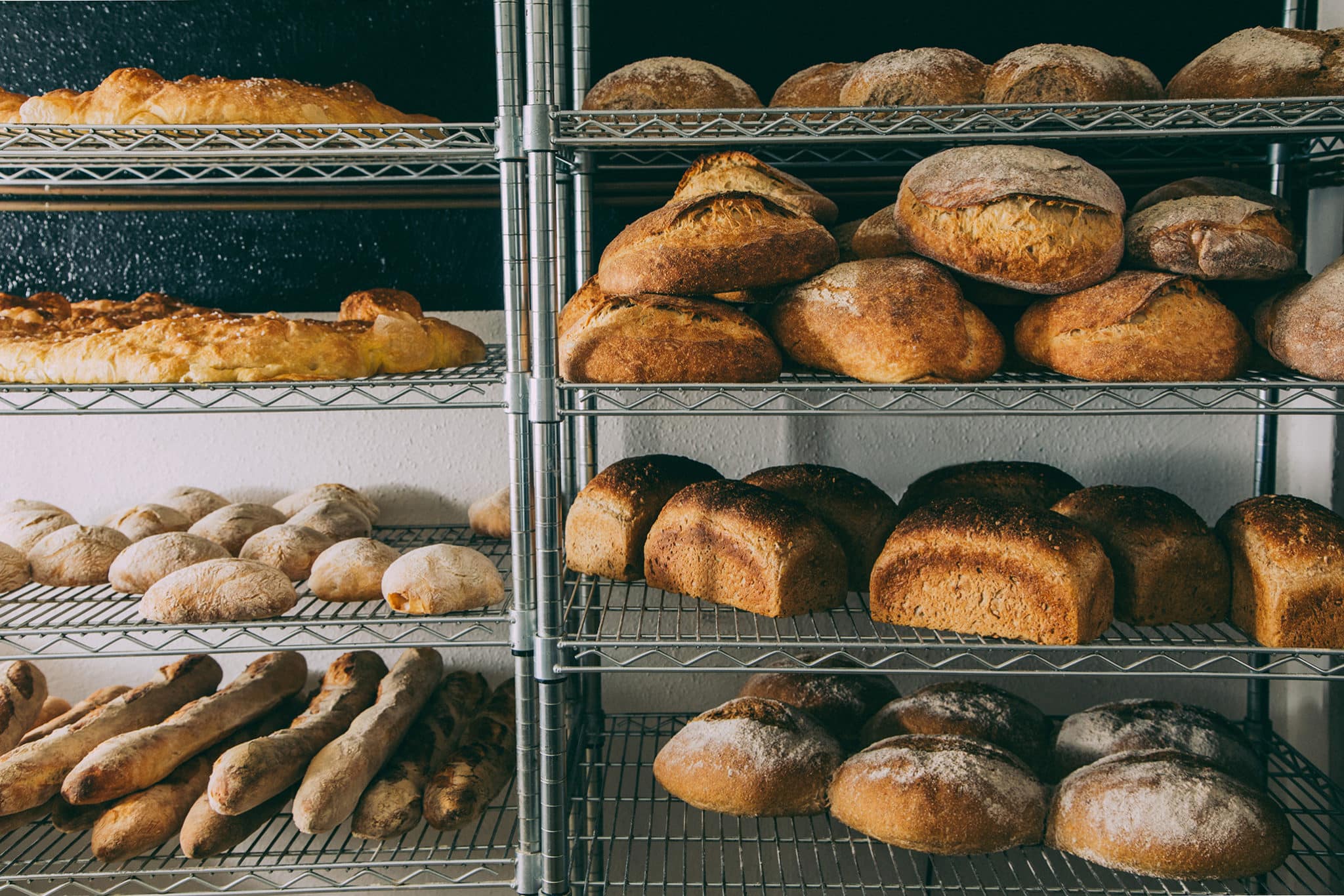Why does bread matter? Partly because almost all of us eat it; 99.8 per cent of households buy bread and 11 million loaves are sold each day, according to trade body UK Flour Millers. It matters because we eat over half our body weight in the stuff every year.
It also matters because as it stands, the vast majority of bread is a nutritional, ecological and social disaster. Our sliced white loaf, which accounts for three-quarters of the UK consumption, is devoid of nutrition, based on cheap labour and wheat grown using toxic pesticides and fossil fuel-derived fertiliser.
But it’s cheap. Today you can buy a loaf for as little as 36 pence in Tesco.
In contrast, a loaf of so-called ‘real bread’, made by bakers paid a fair wage rather than machines, using traceable, nutritious grains from sustainable farms, can cost the best part of five pounds.
Who’s going to pay for the gap between what it costs to make and what people can afford? Chris Young, co-ordinator of the Real Bread Campaign
Is it possible to bridge this void in cost in the middle of a cost-of-living crisis? Bakers, ‘breadheads’ (as bread fans call themselves), and food campaigners from all over the country united in crisis talks at the pioneering E5 Bakehouse in east London recently to address the issue.
“Who’s going to pay for the gap between what it costs to make and what people can afford?” asked co-ordinator of the Real Bread Campaign, Chris Young, reminding us of the tight margins many bakeries battle.
“Some of us have some discretion in choosing real bread,” said Young. “But many people don’t.”
Passionate bakers often don’t just bake; they are thinking deeply about this staple food. Interestingly, bakeries can often be a bastion of progressive politics, and within them, they project a vision of society they’d like to see taken up more widely. That’s why it matters to them that their product is available to and enjoyed by all.

One bakery in Birmingham has been leading the way since 2012. Loaf, a bakery run as a workers’ co-operative, sells the ‘Stirchley loaf’ (the neighbourhood they are based in) for one pound.
“It’s like a soft crust batch loaf made with half wholemeal, half white flour, and we add potato,” says Loaf co-operative member Nancy Langfeldt.
“We’ve always maintained that we would keep that at one pound, even though it ought to go up in the current environment,” says Langfeldt, adding that the price of flour has gone up by half, butter has almost doubled, and electricity costs have increased by almost 150 per cent.
The secret is that the £1 loaf, and the rest of the bakery, is subsidised by an attached cookery school. Home baking, as Langfeldt points out, being “the most accessible option” of all. A subsidy system is a popular model in the baking world; while pastries and coffees can seem expensive, this is often how the price of a basic loaf of bread is kept down.
Language can have a big impact – sourdough can be very alienating. Lizzie Parles, baker and chef
“Although the bakery has a significant turnover, it’s not a high profit business,” says Langfeldt. “There’s a limit to how much you can charge for bread because of the environment you’re selling it in.
“A large proportion will be buying the Stirchley loaf, particularly those on a lower income who don’t want to miss out on good bread,” says Langfeldt. “It fills you up. It’s more nourishing.”
While price is undoubtedly a big factor, it’s not the only thing putting people off buying bread from bakeries.

“Language can have a big impact,” says Lizzie Parle, from Ten Belles bakery in Paris. “Sourdough can be very alienating. It’s not easy to explain and you have to get quite science‐-y.”
“It’s also about accessibility,” said Young, back at the E5 event, on sourdough’s premium image. “Some people think ‘this is not my food’, ‘these are not my people’.”
“We need to avoid making it [sourdough] seem like a boutique, fancy product,” adds Langfeldt.
“Sourdough is not a product, it’s a process,” she continues. “It’s a really normal way of making bread, and it would have been in every household, not especially long ago.”
This is why, explained Young, Small Food Bakery in Nottingham, run by baker Kimberly Bell, is selling sliced sourdough loaves through a local corner shop. “This is where people actually go,” he explained.
But the reality is most people still buy their food in the supermarkets. Is this the answer to the question of access? Young certainly thinks so: “They could make it accessible to millions of people.”
Everyone cares about their food and what it does to them. The question is how do we give everyone the opportunity to figure that out. Nancy Langfeldt, Loaf co-operative member.
But the camp is split. “Whether or not real bread is on the supermarket shelves, they’ll still keep the profits,” says director of the documentary Real Bread Bakers, Zev Robinson.
“There’s more to sourdough than the process if it’s made in a small bakery. There are so many social benefits,” he adds.
As Robinson suggests, it’s powerful to see what a real bakery can do beyond baking: from Loaf’s in-house subsidies keeping the price down, to Small Food Bakery championing creative ways to improve access to better bread.
But how do we get people to care about the power of bread and bakeries? Langfeldt has strong views on the matter: “I think everyone cares about their food and what it does to them.”
“The question of caring isn’t the right one,” she adds. “The question is, how do we give everyone the opportunity to figure that out, because a lot of people don’t have much choice in the matter.”
This article was originally published in the Autumn 2022 print edition of Wicked Leeks. You can read the full issue online now.









0 Comments